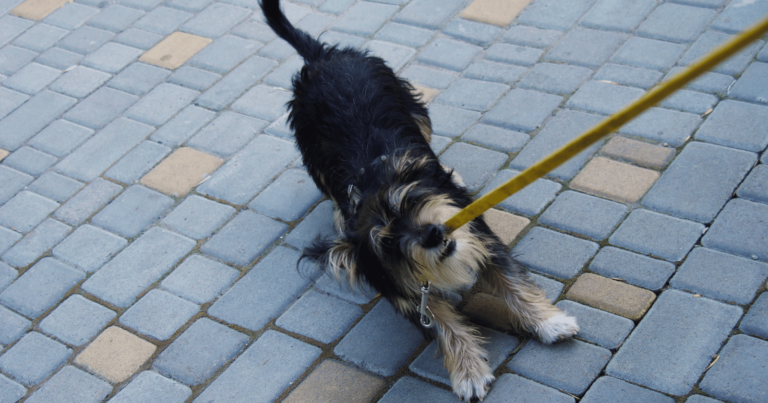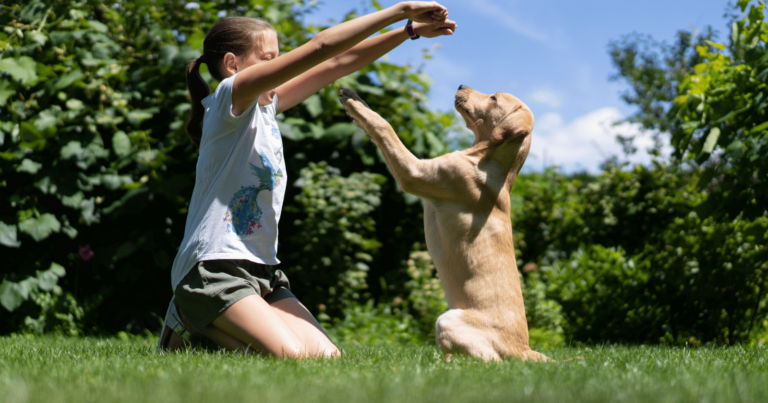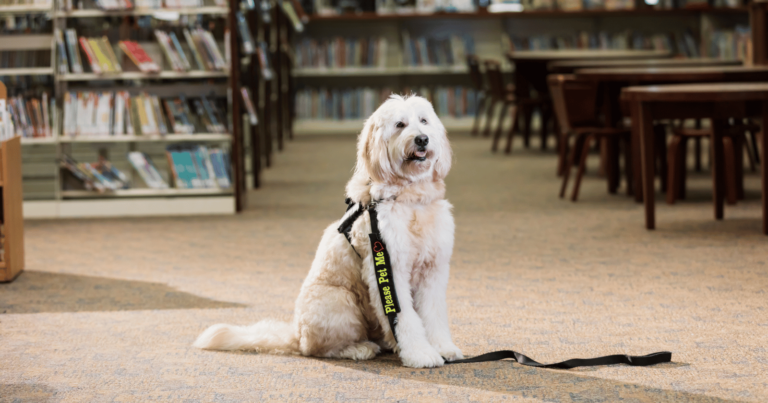Becoming a successful dog trainer isn’t just about liking dogs.
It involves a lot more than that.
It’s about understanding canine behavior, knowing how to communicate with them, and having the patience to train them.
If you’re considering this career path, there are certain skills you need to have.
Skills that go beyond just being a ‘dog person’.
In this article, I’ll reveal the 8 crucial skills you need to become a successful dog trainer.
1. Understanding canine behavior
Dogs aren’t just smaller, furrier humans.
They have their own unique set of behaviors and communication methods.
As a dog trainer, it’s paramount that you understand these behaviors.
We’re talking about everything from reading their body language to understanding their barking patterns.
This is the foundation upon which all other dog training skills are built.
You can’t hope to train a dog if you don’t understand what they’re trying to communicate to you.
In fact, many behavioral issues in dogs arise from misunderstandings between the dog and their human.
As a trainer, you have the opportunity to bridge that gap and improve the relationship between dogs and their owners.
But it’s not just about understanding dogs.
It’s also about knowing how to respond in a way that’s meaningful to them.
After all, successful communication is a two-way street.
So start by learning about canine behavior.
Observe dogs. Read books. Take courses.
The more you know, the better equipped you’ll be as a trainer.
2. Patience

As a dog trainer, patience isn’t just a virtue, it’s a necessity.
Let me share a little story.
Early in my career, there was this one dog, Mo.
M0 was an energetic Border Collie with a penchant for chasing his tail in endless circles.
Training Mo was a challenge.
He had a short attention span and would often get distracted by the smallest things, like a falling leaf or a passing bird.
There were times when I questioned if I was cut out for this job.
Progress with M0 was slow and there were days when it felt like we were going backwards rather than forwards.
But here’s the thing – patience paid off.
I didn’t give up on Mo.
Instead, I adjusted my training methods to suit his unique personality and energy levels.
It took time – a lot of time – but eventually, M0 began to respond to the training.
Now, M0 is living happily with his family, less prone to hyperactive episodes and much better at obeying commands.
The journey with M0 taught me the importance of patience in dog training.
It’s about understanding that each dog is unique and learns at their own pace.
As a trainer, your job isn’t to rush them through the process, but to guide them with patience and consistency.
This can be challenging at times but trust me, the rewards are worth it.
3. Knowledge of various training techniques
Did you know that there are more than a dozen different dog training methods?
From positive reinforcement to clicker training, each technique has its own set of pros and cons, and what works for one dog may not work for another.
As a dog trainer, it’s essential to familiarize yourself with a wide range of training techniques.
This way, you can adapt your approach based on the dog’s breed, age, temperament, and the specific behavioral issues you’re trying to address.
It’s like having an arsenal of tools at your disposal.
The more methods you know, the better equipped you’ll be to handle any training challenge that comes your way.
4. Communication skills
Being a successful dog trainer isn’t solely about communicating with dogs.
You also need to effectively communicate with their owners.
You see, even the best trained dog can revert back to old habits if their owner doesn’t understand how to reinforce the training at home.
This is why it’s crucial for you to explain training methods clearly and simply to the owners.
Moreover, part of your job will involve listening and empathizing with owners who may be frustrated or unsure about their pet’s behavior.
It’s your role to provide reassurance, guidance, and practical solutions.
Great communication skills can set you apart as a dog trainer, and foster a positive and trusting relationship with both the dog and their owner.
5. Love for dogs
At the heart of every great dog trainer is a deep love for dogs.
This isn’t just a job for you, but a passion.
Every dog you encounter, whether it’s a tiny Chihuahua or a massive Great Dane, should ignite a sense of joy and purpose in you.
This love fuels your patience, understanding, and dedication to helping both the dog and their owner.
It’s this love that gets you through the challenging days when training seems tough, or when a dog is struggling to break a bad habit.
It’s this love that reminds you why you chose this path in the first place.
Because when you truly love what you do, it shines through in your work.
And both dogs and their owners can sense this passion.
6. Resilience

Dog training is not always a walk in the park.
There will be days when progress seems slow, or when a dog you’ve been working with for weeks suddenly regresses.
I remember a time when I was training a particularly stubborn Bulldog named Bella.
Despite my best efforts, Bella seemed to resist every attempt at training.
It was disheartening, to say the least.
However, being a dog trainer requires resilience.
Just like with Bella, you have to pick yourself up and keep trying, even when things get tough.
It’s about staying committed to your goals, adapting your methods when necessary, and always striving to be better.
It’s in these challenging moments that you truly grow as a trainer.
And the sweet victory of finally getting through to a dog like Bella?
That makes all the hard work worth it.
7. Adaptability
No two dogs are the same. Each one has a unique personality, learning speed, and set of behaviors.
What works for one dog might not necessarily work for another.
As a dog trainer, you need to be adaptable.
You need to be able to adjust your training techniques and strategies based on the individual dog in front of you.
This could mean trying different reinforcement methods, changing your training environment, or even adjusting your own behavior to better suit the dog’s needs.
Being adaptable not only makes you a more effective trainer, but it also shows respect and understanding for the individuality of each dog you work with.
8. Continuous learning
The field of dog training is constantly evolving.
New research, techniques, and insights are being discovered all the time.
As a trainer, it’s your responsibility to stay updated with these developments.
This means regularly reading up on new research, attending workshops, and constantly seeking ways to improve your skills.
Continuous learning ensures that you’re providing the best possible training for dogs and their owners.
It shows your commitment to your profession and your passion for your work.
At the heart of it all: Empathy
Being a dog trainer goes beyond the execution of commands and techniques.
It’s about understanding and connecting with another species on a deep and profound level.
The eminent dog trainer, Ian Dunbar, once said, “Training dogs is about building a bond based on trust, respect, and mutual understanding.”
As you delve into this line of work, remember that each dog is more than just a client.
They’re an individual with their own quirks, fears, and joys; a sentient being deserving of respect and kindness.
Yes, the technical skills are important, but it’s your empathy and understanding that form the heart and soul of your work as a dog trainer.
It’s what enables you to connect with dogs on their level, to understand their needs, and to guide them towards a happier, more balanced life.
As you move forward in your journey to becoming a successful dog trainer, keep this at the forefront of your mind.
The techniques you’ll learn are tools, but it’s your empathy that will truly transform lives – both canine and human.













